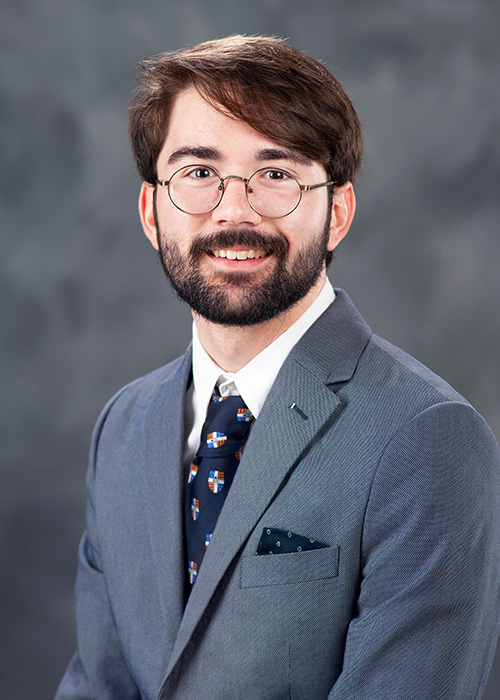Recent MSU graduate receives prestigious fellowship to study quantum computing

Contact: Sarah Nicholas
STARKVILLE, Miss.—As the recipient of a new fellowship funded by the U.S. Department of Energy, a recent Mississippi State physics and mathematics graduate will further his studies of quantum computing, a field that explores the intersection of quantum physics and computation.
Nicholas A. “Nic” Ezzell of Laurel is one of approximately 30 students nationwide joining the University of Southern California next fall with a U.S. Department of Energy Computational Sciences Graduate Fellowship (CSGF) to work at the Center for Quantum Information Science and Technology (CQIST).
Around two percent of scholars who apply are chosen for the highly selective program, which receives more than 1,000 applications per year.
The University of Southern California’s CQIST division is one of the biggest and most successful national collaborations for quantum annealing (QA)—Ezzell’s intended course of study—which focuses on efficiently solving real-world optimization problems.
“Quantum computing is a hot field right now,” Ezzell said, noting the U.S. government has recently provided more funding for the field.
“One area they are particularly interested in is QA,” said Ezzell, who was a recipient of the highly coveted Barry Goldwater Scholarship last year. “I have experience in this field, and I also intend to work on it in graduate school at USC, which has a very large QA group.”
USC owns a D-Wave QA device in a joint research effort with Lockheed Martin Corporation.
Ezzell said the fellowship has a specific target audience including scientists, engineers and mathematicians who are “masters in their fields but are literate in the modern world of high performance computing (HPC) and intend to use HPC in their field.”
Mark Novotny, professor and head of MSU’s Department of Physics and Astronomy, said the fellowship’s goal is to train and produce the next generation of leaders in computational science. The experience will give Ezzell a chance to enhance his leadership abilities in this area, he added.
“Nic deserves the CSGF both for his scholastic ability demonstrated at MSU in his rigorous course of study as a physics major, and for the groundbreaking research he has conducted both at MSU and at Oak Ridge National Laboratory,” Novotny said.
“Nic has impressed me with his maturity, knowledge of quantum physics, understanding of computational science, work ethic, and his willingness to help other students,” Novotny added.
Ezzell has participated in research at MSU with Novotny, as well as Nicholas Fitzkee, associate professor of chemistry. He also has researched extensively the past two summers with the U.S. Department of Energy’s Oak Ridge National Laboratory, where he worked one summer under the guidance of research staff member Miguel Fuentes-Cabrera and the next under Travis Humble. Humble is director of Oak Ridge’s Quantum Computing Institute.
Ezzell’s research at Oak Ridge was tailored to the development of quantum computing software. He has presented to the American Physical Society and is a listed author on a paper accepted into Biophysical Journal, along with other research accomplishments.
MSU’s College of Arts and Sciences includes more than 5,300 students, 300 full-time faculty members, nine doctoral programs and 25 academic majors offered in 14 departments. Complete details about the College of Arts and Sciences or the Department of Physics and Astronomy can be found at www.cas.msstate.edu or www.physics.msstate.edu.
MSU is Mississippi’s leading university, available online at www.msstate.edu.